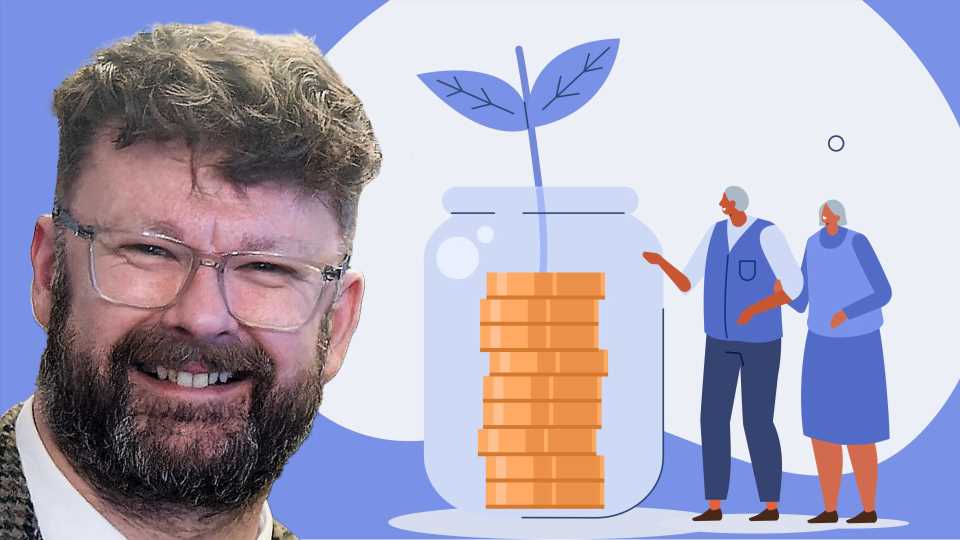The six most common questions I'm asked as a debt adviser – including what to always pay first | The Sun

WHILE debt isn't something any of us want to have, it's very normal and isn't necessarily a cause for concern.
But when you start struggling to keep up with the repayments, you may be wading into "problem debt" territory.
This is when it could be a good time to seek advice on how to manage your debts going forward.
An increasing number of households have sought help with their debts over the past two years as the cost of living crisis has pushed them over their spending limit.
A Freedom of Information (FOI) request made by financial firm Quilter, provided exclusively to the Sun, shows calls to the government's MoneyHelper service about debt problems have spiralled over the last two years.
In 2021, just 2,304 calls were made regarding debt problems.
MORE ON DEBT

I ended up £30k in debt after using app to improve credit score – traps to avoid

I was chased by debt collectors after cancelling my O2 contract – your rights
But in 2022, this soared to almost 10,000 calls, and so far in 2023 there have already been more than 7,000 calls made.
Debt advice charity StepChange also reported a 20% increase in people seeking help with problem debt in 2022.
Below, Jonathan Chesterman, debt advice policy manager at StepChange, shares his answers to six of the most common questions he is asked by clients.
How do I know if my debts have become a problem?
According to Mr Chesterman, signs you're struggling with debt include relying on credit to pay for essentials like food or bills, or regularly only making the minimum credit repayments.
Most read in Money

Pay rise for nearly half a million workers from TODAY – will you get one?

Huge discount chain with over 800 branches to close all stores on Boxing Day

Cheapest shops to buy Xmas chocolates including Quality Street & Celebrations

Full list of payments worth up to £1,085 landing by Xmas – are you eligible?
If you're incurring late fees from credit providers, this is also a sign you're not on top of your repayments and might need some assistance.
"It might also be that you’re just about managing to meet
repayments but it’s constantly causing you stress and anxiety," he added.
Where can I go to get help with problem debt?
If you're struggling with your debt levels, there are several organisations dedicated to providing free and impartial advice on the best route forward.
These include charities StepChange, Citizens Advice and National Debtline, alongside the government's MoneyHelper service.
They all offer a mix of online, over the phone and face-to-face debt advice.
Mr Chesterman said: "At StepChange, our advisers will go through a full budgeting session with you, looking closely at your income and outgoings to figure out the best solution.
"Our debt advisers are non-judgemental and there to support you."
You can contact StepChange on 0800 138 1111, Citizens Advice on 0800 240 4420, National Debtline on 0808 808 4000 or for MoneyHelper you can send a Whatsapp message to +44 770 134 2744.
Do I have to pay to get debt advice?
Most debt advice is free – although there are some firms which charge.
If you go to a registered charity or through a government service you should not have to pay.
Mr Chesterman says it's important to be cautious when searching online for debt advice, as there are scammers impersonating reputable charities who may try to charge you.
"Always double check website URLs and phone numbers and, if you’re unsure, you can check the Financial Conduct Authority’s register to make sure an organisation is regulated," he said.
Will getting debt advice affect my credit score?
Getting debt advice will not affect your credit score in any way.
However, certain debt solutions, such as a repayment plan or filing for insolvency, will be reflected on your credit report.
And bear in mind that if you need debt advice because you've fallen behind on payments, your score may already have been impacted.
Don't let this put you off, though, as the longer you leave the problem, the worse the impact could be long-term.
What are 'priority debts'?
Some debts are classed as "priority" debts because the consequences of not paying them off can be more serious than others.
Some examples of priority debts are mortgage payments, rent, gas,
electricity, council tax and child maintenance.
Mr Chesterman said: "When you’re struggling to repay multiple
debts, priority debts are always the ones you should address first.
"Get these wiped before any type of consumer credit debt like credit cards or personal loans," he added.
"If you're having difficulty paying for essential bills, reach out to the firm to let them know, as they should offer support and affordable payment plans."
Can I save money while being in debt?
There is nothing to stop you from saving money into an account while paying off debts.
But due to the high interest fees on many credit products, it usually makes financial sense to pay those off first before trying to save, Mr Chesterman explained.
"Priority debts should also always be addressed first before considering saving," he added.
Read More on The Sun

Mystery as orca Moana dies suddenly in captivity at French theme park

EastEnders legend drops big hint she’s signed up for I’m A Celeb jungle
"However, we all know those unexpected expenses do happen.
"So, provided you’re able to meet all your debt payments, putting aside a little extra as a savings buffer can be a sensible move."
Do you have a money problem that needs sorting? Get in touch by emailing [email protected].
You can also join our new Sun Money Facebook group to share stories and tips and engage with the consumer team and other group members.
Source: Read Full Article
